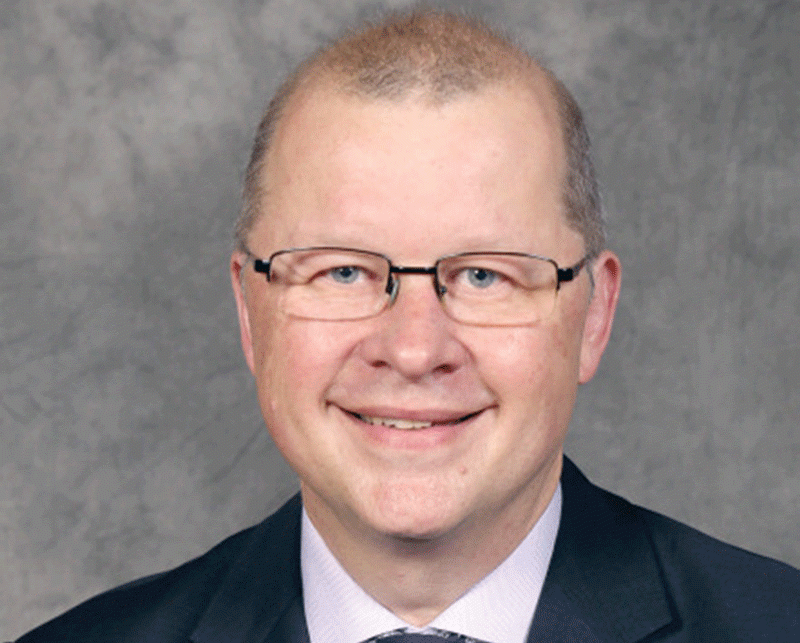
THE need to prepare the next generation of leaders is important for the success of any organisation. Experienced educator Tim Argall (TA), tells NewsDay Weekender columnist Jonah Nyoni (JN) that succession must be planned and have contingency to succeed.
Find excerpts below:
JN: How do we prepare the next generation of leaders so that they are able to take over our leadership?
TA: As a leader, my first intention for every position that I have taken on as a new leader was to look around me and see who the natural leaders were.
These are the already developed leaders within the organisation. If you begin in a leadership role and you are autocratic, saying, “This is how we will do it,” and you’re not mindful of who is around you, they won’t follow or listen to you.
They might comply for a while because they want to please you, but eventually, they will go.
Whereas, if you are looking for those who are good leaders and who can be better than you in the future, from the very beginning, there is an understanding in the organisation that you are for them, seeking their betterment.
So, I look for people who have upfront skills, who can speak well, are good leaders through the way they care for people and the way they pastor them.
- Leadership succession: Tim Argall’s approach
Keep Reading
I look for people who are good leaders because they know how to take a lot of good ideas and make them happen.
Remember, no leader has all of those skills together. A very good leader will have some parts of all those components, but they will be better at some than others.
Preparing for the next generation is about first identifying who has potential and then walking with them, building their confidence to the point where they trust they can give it a go and try it out without you.
Currently, I am away from my organisation for seven weeks, and I have trained three people to cover my role when I’m not there.
Naturally, I am a pastor and love to care for the people that I’m leading. I call them once a week to see how they are doing, but if I forget, it’s no problem because in the eight years I have worked with them, I have helped them develop a skill set that means they can do whatever is required while I’m not there.
This allows me to take long leave to better myself, so that I can go back and build them even more.
JN: Peter Drucker talks about succession, saying the word embodies within itself the word success. Is it correct to say there is no leadership success without succession?
TA: I strongly believe that there is a time in every organisation where my time is finished, where I have led them as God has called me to.
That is a critical moment, and it is time to pass the baton to the next person I have prepared for that role.
Succession has to be planned, must have contingency, and must have alternatives because sometimes the circumstances of your organisation will change.
So having more than one person who understands what it is to take responsibility for the organisation is a critical part of how you plan succession. I am the leader of a very big Christian school.
Right now, when I finish at that school, they may well be planning to start another school, or even two more.
Now, I would love the blessing of being able to take them into that stage and maybe that will be the case.
So at the moment, I have undertaken to prepare whoever the next leaders are for whatever that future looks like because for me, God has called me to be humble.
God has called me first to be the hands and feet of Jesus in the relationship I have with the people who are my board and those I am preparing to succeed.
Preparing for succession is important because the school that I lead is 50 years old. I joined it when it was 42 years old, so it already had 42 years of history. It did very well without me.
I think if a leader cannot imagine what the church, organisation, or school would be like without them, then they have gotten in the way of God and the faith they profess.
JN: Jesus had 12 disciples and trained them for three and a half years. Take us through the model that Jesus gave us. Is the model applicable in corporate spaces?
TA: I’m trying to apply it in my own team. I lead a team of nine directly, and then I am one of the nine and the other eight all have significant leadership responsibilities within the organisation.
Jesus led a team, who were his disciples. He taught them well and gave them very clear direction on what he expected of them.
He spent time with them in prayer and development. He also trusted them. He sent them to the Decapolis and other places to preach the word while he was still on Earth.
When they came back, they shared their experiences and he debriefed and mentored them. You know, Peter, at the very time when Jesus wanted him to be stronger, denied him three times.
It was not the end of his ministry. It may have been the lowest point, but from there, he became the leader of the Gentile church.
That doesn’t happen unless you have a person who is mentoring and walking with you in the development of your leadership and planting principles from God in your understanding.
So, in today’s organisations, I think it is no accident that those that thrive long-term are those where the personality is not the reason they are thriving, but it is the person who is leading, imparting wisdom and truth, creating expectations and creating a vision for what the people they are growing are able to be. I'm convinced that’s what Jesus was doing with his disciples for those three and a half years.
JN: Most leaders won’t trust the people they should be mentoring. They fear being replaced. So, in the end, the organisation does not move without them because they have not empowered anyone. How do we prepare for self-replacement?
TA: Trusting your subordinates is a very difficult challenge. It’s difficult because I’m convinced that if you get to the point where you can’t trust the people who are working under you, it’s time for you to leave.
I have 300 employees; how can I watch what every single employee is doing all the time?
There is implied trust because at best, I can supervise five or 10 people directly. I have adopted a way of approaching my leadership of those 300 people, trusting that they understand their calling for the betterment of the community we serve and the organisation we are part of.
Now, if I hear otherwise, I will speak with them about it and seek to understand why they can't be part of that vision.
If I repeatedly have reasons not to trust someone, then something has to change in the relationship, and we will have to find a way to part ways.
For an organisation to thrive in the long-term, there must be the capacity to trust your colleagues, your immediate managers and the organisation’s heads, vice versa. If you can’t trust upwards, that likely reflects why you are not trusted downwards.
JN: Warren Bennis wrote a book called Why Leaders Can’t Lead. He stressed that opposing change as a leader is as futile as opposing the weather. How do we master the winds of change?
TA: When I started as a leader, there was no such thing as an external hard drive for a computer. We had floppy disks with kilobytes, which later progressed to megabytes and to what we have now.
A floppy disk had the capacity to hold only one document. So, I have seen 30 years of change as a school leader. In the last 20 to 30 years, there has been rapid technological change.
People saw new technology as the solution and invested all their resources into it, committing to becoming whatever the cutting edge was. In schools, it became clear we could not keep up, no matter how fast or how much we tried.
We could not keep up until we changed our thinking: technology is not the solution; it is a tool. Embracing this mindset shift allowed us to adapt. We looked at how children in schools, who are now digital natives, approached technology — not as a solution, but as a tool.
This perspective is incredibly freeing. When technology is just one of many tools we use to make life easier, it is more manageable.
If a leader thinks they have all the answers, they will fail. Leaders need the humility to identify people within the organisation who are intelligent and clever, who can take their wisdom and use new opportunities for the betterment of the organisation.
This helps the leader as well, as they are seen as someone who encourages and builds up their team. We have a man who works in our organisation who was the first person in Australia to set up a completely online church. When COVID-19 hit and we had to switch to remote learning, we already had expertise in digital spaces.
Embracing change without accountability is like the Wild West. Establish checkpoints: look at progress in three months, reassess in six months, and so on.
Artificial intelligence (AI), when it first came into schools, allowed children to write essays in seconds. For those of us with decades of experience, we had to change our thinking — not because we wanted to, but because we serve the students.
With AI, we changed our assessment methods, focusing on understanding and application, which took time and conversations with all stakeholders.
My children, who are now in their late twenties, did half of their exams by portfolio. The way we understand learning and application has evolved.
Now, we don’t do examinations until the final years because we want to prepare children to debate, inquire and find reliable information.
Not all technology is good and not all information found online is true. We teach children to discern reliability and quality because we want them to be relevant citizens in the world.
JN: Change is moving at breakneck speed. What would be a word of motivation to any leader on learning fast and moving fast in view of change?
TA: Are you prepared to start all over again? If not, it’s time to step aside. That’s not motivational, but it’s reality. The best leader will be the one who is prepared to walk back to the start and say, “Let’s go again.”
As change happens at breakneck speed, it breaks all the rules.
The best leader is the one who is prepared to say, “Alright, let’s go back to the start and build again.”
It’s a form of self-government based on seeing the future as worth having, seeing the people you lead as worth serving and having the humility to learn with them as you move forward.
- Jonah Nyoni is an author, speaker and leadership trainer. He can be contacted on X @jonahnyoni. WhatsApp: +263 772 581 918










